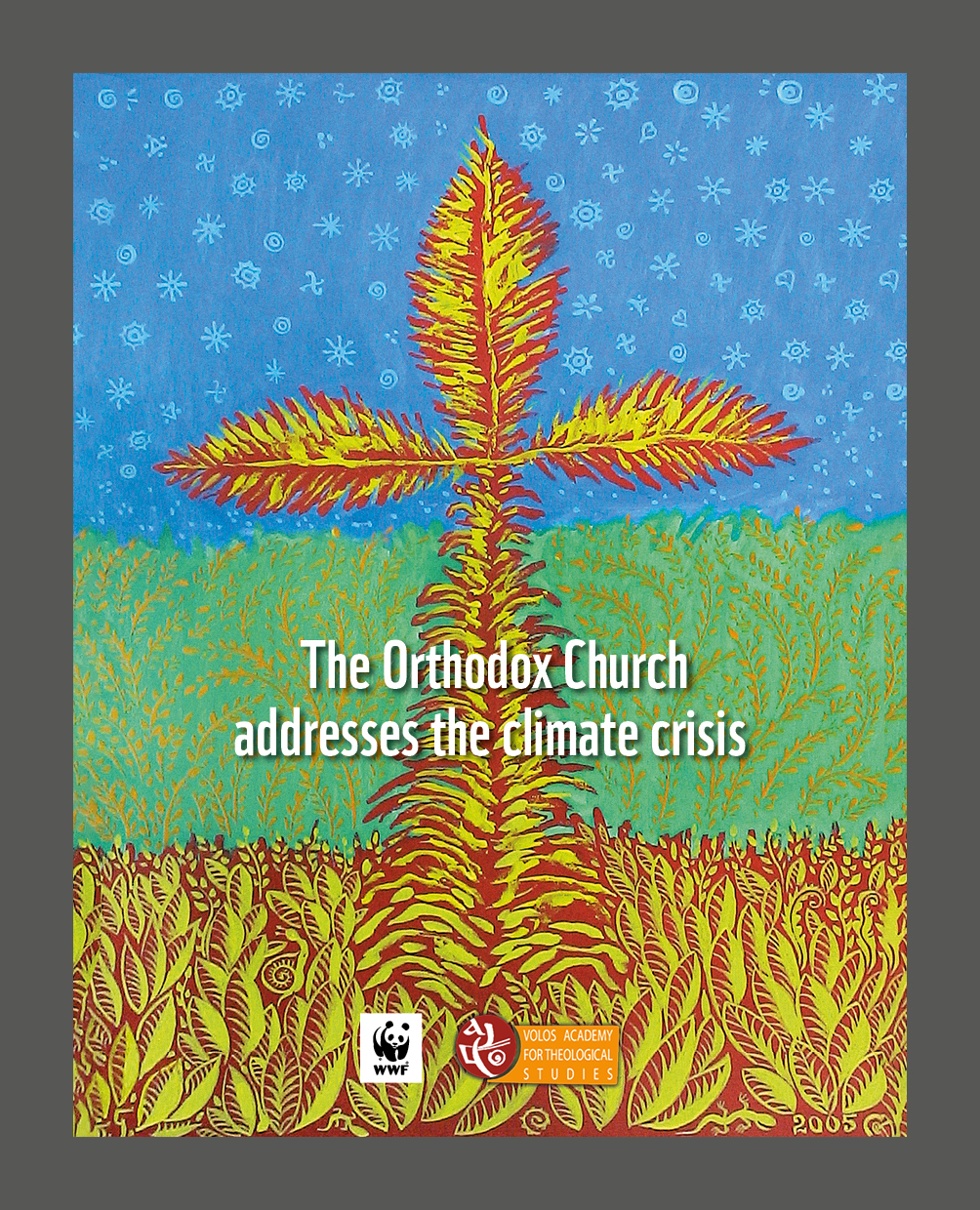
Volos Academy for Theological Studies in cooperation with WWF Greece are pleased to announce the publication of the volume entitled “The Orthodox Church Addresses the Climate Crisis” (Theodota Nantsou & Nikolaos Asproulis (eds)., WWF Greece & Volos Academy Publications, Volos/Athens, 2021). The volume contains a selection of texts which represent different contexts from the Balkan area, describe different problems and needs, but also express the common vision of the local Orthodox Churches which hear the grains of the creation of God and have been entitled to cope with the pain of the people in any place.
The book begins with a bold message by H.A.H. the Ecumenical Patriarch Bartholomew, who strongly highlights on the paramount responsibility and momentous role that the Orthodox Churches in the Balkans have to play in raising awareness and shepherding change in cultural perceptions and social convictions. The late Patriarch of the Serbian Orthodox Church Irinej describes the context which needs to shape the debate on the relationship between the Church and the environmental problem that is modernity should take place. Laurence Tubiana CEO of the European Climate Foundation calls on Eastern Orthodoxy to boldly contribute to a change of ethical practices and to develop a vision for the Balkan people of a more ecofriendly, human-friendly way of life. WWF International’s Director General Marco Lambertini refers to the Church leaders who need to support the smooth and inclusive transition from high carbon dependence towards zero carbon sustainable economies and vibrant societies. Metropolitan John of Pergamon (Zizioulas) in his interview focuses on the role the Church can play in protecting the environment providing some general guidelines by virtue of her life and tradition still useful in our time. Based on his long pastoral experience in a small city (Volos) in the Greek province, Metropolitan Ignatius of Demetrias offers a constructive re-interpretation of the eco-theological and anthropological elements of the rich ecclesiastical tradition in order to inspire a new and badly needed eco-ethos. Α bishop from the lignite region of Western Macedonia, Metropolitan Pavlos of Servia and Kozani, reflects on certain aspects of the Christian tradition that could help the Church in its endeavor to stand by the people in need that would most be affected by the ongoing transition process to the post-coal era. Bishop Ignatije of Pozarevac and Branicevo, a region which is home to lignite thermal power plants, like Kozani, reflects on the roots of environmental degradation, while he focuses on relational ontology as a means by which the Church can inspire a new ethos and way of life in the midst of the present crisis. Theodota Nantsou, Head of Policy at WWF Greece, gives us the bigger picture of the critical situation facing our planet, focusing on the climate crisis. She then stresses the important role of the Orthodox Church is changing attitudes and encouraging climate action, by highlighting good practices. Nikolaos Asproulis, Deputy Director of the Volos Academy for Theological Studies, provides a sketch of the basic doctrinal contours (e.g. creatio ex nihilo) that must underlie any green that is eco-theological, account. Sveto Riboloff, Associate Professor of Theology at the University of Sofia, offers a survey of theological education in Bulgaria and the position (if any) of ecological topics in the academic curricula, while he voices criticism towards the indifference of the Bulgarian Orthodox Church in the face of the environmental crisis. Thymio Papayannis, President Emeritus of WWF Greece explores the links between Christianity and climate change in the midst of the current Covid-19 pandemic, addressing the social impact of the situation. Zvezdan Kalmar, from the Centre for Ecology and Sustainable Development, a Serbian NGO, focuses on the causes of climate crisis and pollution, while highlighting the economic dimensions of the debate. He fervently calls on all Christians to show zero tolerance towards the fiscal, technological, legal and institutional manipulations that produce pollution and destruction of nature. The book concludes with a priestly call by an environmentalist Greek priest, Rev. John Economides who provides a pastoral view of environmental disaster in his local setting, a parish in an industrial area in Attica (Greece) Father John calls on Christians to be part of the solution through their own way of life and to take action in pressing governments to stop making environmentally destructive choices.
The book is in English and it is available for free download HERE.